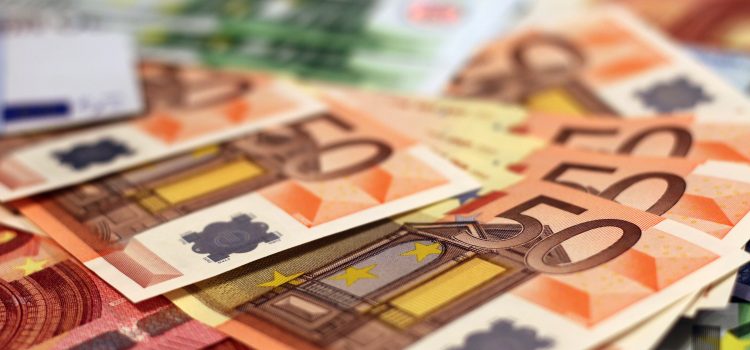
Are you a savvy investor looking for ways to make a positive impact on the environment while still earning good returns? Look no further than sustainable ETFs! These investment funds, which prioritize companies with strong environmental, social and governance (ESG) practices, are gaining popularity in Europe as investors recognize their potential to offer both financial and ethical benefits. In this blog post, we’ll explore the cost-effectiveness of investing in sustainable ETFs in Europe and how they may be an effective way to achieve your investment goals while contributing toward a more sustainable future.
What are Sustainable ETFs?
Sustainable ETFs are exchange traded funds that focus on companies that are environmentally and socially responsible. While the definition of what constitutes a sustainable company varies, these ETFs typically invest in companies with high environmental, social, and governance (ESG) ratings.
Sustainable investing has become increasingly popular in recent years as more investors look to align their values with their investment portfolios. A recent study by Morgan Stanley found that nearly 60% of European investors are interested in sustainable investing, and sustainable ETFs are one way to access this type of investment.
There are a number of advantages to investing in sustainable ETFs. First, they can help investors achieve their financial goals while also making a positive impact on the world. Sustainable investing is often seen as a way to generate long-term alpha, or outperformance, due to the fact that companies with strong ESG ratings tend to be well-managed and have lower risk profiles.
In addition, sustainable ETFs can help investors diversify their portfolios and potentially reduce risk. A study by MSCI found that including sustainability factors in asset allocation models can lead to improved portfolio outcomes, including higher risk-adjusted returns and lower volatility.
Finally, sustainable ETFs offer investors exposure to some of the fastest-growing companies in the world. The global market for sustainable investments is expected to reach $30 trillion by 2030, according to a report by Goldman Sachs, and companies that focus on sustainability will likely be at
The Different Types of Sustainable ETFs
There are three different types of sustainable ETFs, each with their own unique benefits:
1. Green ETFs: These ETFs invest in companies that are focused on environmental sustainability. This can include things like renewable energy, clean tech, and water conservation. Green ETFs are a great way to invest in the future of our planet while also earning a return on your investment.
2. Social ETFs: Social ETFs invest in companies that focus on social responsibility. This can include companies that are committed to fair labor practices, diversity, and social welfare. These ETFs allow you to align your values with your investments and support businesses that are making a positive impact on society.
3. Sustainable Growth ETFs: Sustainable Growth ETFs invest in companies that have a track record of environmental and social responsibility AND financial success. This is the perfect option for investors who want to support sustainable businesses but still expect to earn a healthy return on their investment.
Pros and Cons of Investing in Sustainable ETFs
The Pros:
1. Low cost – Sustainable ETFs tend to have lower expense ratios than traditional mutual funds.
2. Diversification – Sustainable ETFs offer investors exposure to a variety of asset classes and sectors that may be otherwise unavailable or difficult to access through traditional investment vehicles.
3. Transparency – Sustainable ETFs are required to disclose their holdings on a daily basis, providing investors with greater transparency into the underlying investments.
4. Tax efficiency – Sustainable ETFs are generally more tax efficient than traditional mutual funds, as they often generate fewer capital gains.
5. ESG integration – Many sustainable ETFs integrate environmental, social, and governance (ESG) factors into their investment decision-making process, which can help investors align their portfolios with their personal values.
The Cons:
How to Invest in Sustainable ETFs
There are a number of ways to invest in sustainable ETFs in Europe. The most cost-effective way to do so is through a platform like iShares Core MSCI ESG Screened UCITS ETF (ESGE). This type of platform allows you to invest in a variety of sustainable ETFs without having to pay the high fees associated with traditional investment vehicles.
Another cost-effective way to invest in sustainable ETFs is through an online broker like Sustainable Stock Exchanges (SSE). SSE offers a commission-free trading platform that gives investors access to a wide range of sustainable ETFs.
Finally, you can also invest in sustainable ETFs through a traditional brokerage firm. However, you will likely have to pay higher fees and commissions when doing so.
Where to Find the Best Sustainable ETFs
There are a number of ways to identify which sustainable ETFs may be the best fit for your portfolio. One way is to consider the investment objectives of the fund, as well as the fund’s expense ratio and performance.
Another way to screen for sustainable ETFs is by looking at the fund’s holdings. For example, you may want to consider how much of the fund’s assets are invested in companies that are leaders in environmental, social, and governance (ESG) practices. You can also look at the fund’s sector and geographic allocations to further assess its sustainability credentials.
Finally, it’s important to remember that sustainable investing is about more than just screening for ESG factors. You should also consider whether the fund aligns with your values and beliefs around sustainability. With this in mind, below we highlight a few sustainable ETFs that may be worth considering for your portfolio.
Conclusion
Investing in sustainable ETFs is a cost-effective strategy for investors to maximize their returns while also doing good for the environment. By investing in sustainable ETFs, investors have access to a broad range of investments and can ensure that their money is being invested responsibly with minimal effort on their part. Sustainable ETFs provide an ideal way for European investors to make more ethical investment decisions and potentially generate better returns than traditional ETF investments.









